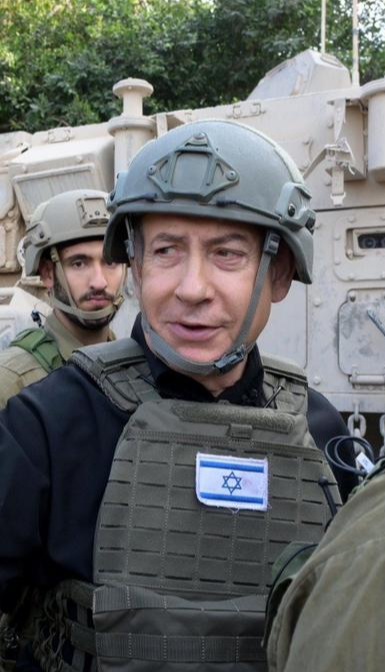
Tel Aviv, June 17 (RHC)-- Israeli Prime Minister Benjamin Netanyahu is opposed to plans announced by the military to hold daily tactical pauses in fighting along one of the main roads into the besieged and bombarded Gaza Strip to facilitate aid delivery into the Palestinian enclave.
The military had announced the daily pauses from 05:00 GMT until 16:00 GMT in the area from the Karem Abu Salem (Kerem Shalom) crossing to the Salah al-Din Road and then northwards.
“When the prime minister heard the reports of an 11-hour humanitarian pause in the morning, he turned to his military secretary and made it clear that this was unacceptable to him,” an Israeli official told the Reuters news agency.
The military clarified that "normal" operations would continue in Rafah -- that is constant bombing of the southern part of the Gaza Strip.
Netanyahu’s opposition to the tactical pauses underlined political tensions over the issue of aid coming into Gaza, where international organisations have warned of a growing humanitarian crisis and looming famine.
National Security Minister Itamar Ben-Gvir, who leads one of the far-tight nationalist religious parties in Netanyahu’s ruling coalition, denounced the idea of a tactical pause, saying whoever decided it was a “fool” who should lose their job.
Far-right government ministers want to slash aid coming into Gaza further, even though it has been largely cut since Israel took over the vital Rafah border crossing. And for months, right-wing Israelis have been protesting and blocking roads to prevent aid shipments from reaching Gaza, further straining the flow of desperately needed aid to the territory.
Prior to the May 6th seizure of the crossing, there was already an inadequate flow of humanitarian aid into Gaza, especially into northern Gaza where famine has already taken hold.
The spat was the latest in a series of clashes between members of the coalition and the military over the conduct of the assault on Gaza, now in its ninth month. It came a week after centrist former general Benny Gantz quit the government, accusing Netanyahu of having no effective strategy in Gaza.
The divisions were laid bare last week in a parliamentary vote on a law on conscripting ultra-Orthodox Jews into the military, with Defence Minister Yoav Gallant voting against it in defiance of party orders, saying it was insufficient for the needs of the military.
Religious parties in the coalition have strongly opposed conscription for the ultra-Orthodox, drawing widespread anger from many Israelis, which has deepened as the war has gone on.
Lieutenant-General Herzi Halevi, the head of the military, said on Sunday that there was a “definite need” to recruit more soldiers from the fast-growing ultra-Orthodox community.
Despite growing international pressure for a lasting ceasefire, an agreement to halt the fighting still appears distant, more than eight months since October 7, when Israel unleashed its most ruthless offensive in Gaza following Hamas attacks into southern Israel.
Israel’s military campaign has killed more than 37,300 Palestinians, according to Palestinian health ministry figures, and destroyed much of the enclave.
Although opinion polls suggest most Israelis support the government’s aim of destroying Hamas, there have been widespread protests attacking the government for not doing more to bring home around 120 captives who have been held by Hamas in Gaza since October 7.
As fighting in Gaza has continued, a lower-level conflict across the Israel-Lebanon border is now threatening to spiral into a wider war as near-daily exchanges of fire between Israeli forces and the Iran-backed Hezbollah group have escalated.
In a further sign that fighting in Gaza could drag on, Netanyahu’s government said on Sunday that it was extending until August 15 the period it would fund hotels and guest houses for residents evacuated from southern Israeli border towns.

